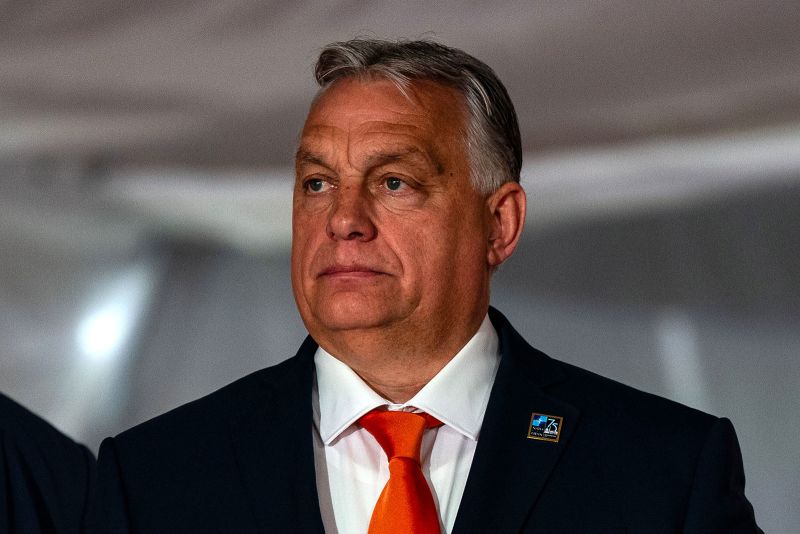The European Union’s next meetings of foreign and defense ministers scheduled in August will be moved from Budapest to Brussels, the bloc’s top diplomat announced Monday, in the latest escalation of a spat between the union and Hungary over its prime minister’s stance on the war in Ukraine.
Hungary’s far-right Prime Minister Viktor Orbán has ruffled feathers among EU leaders by claiming recently that the union has a “pro-war policy.”
Borrell responded to Orban’s comment during a press conference in Brussels, saying, “I understood that we have to send a signal, even if it is a symbolic signal, that being against the foreign policy of the European Union and disqualifying the policy of the European Union as the ‘party of war’ has to have some consequences.”
“We analyzed the statements and the actions implemented” by the Hungarian prime minister and foreign minister, the chief diplomat of the EU said. “I can say that all member states, with one single exception, were very much critical about this behavior,” he added.
“European Union policy is not a pro-war policy. We strongly rejected that,” Borrel said, adding, “the only one who is pro-war is Putin.”
The informal EU Council meetings of foreign and defense ministers were due to take place in Budapest from August 28 to 30, according to the EU council website, with Hungary currently holding the rotating European Union presidency.
Borrell’s decision comes after European Council President Charles Michel firmly hit back at Orbán’s claim that the EU has led a “pro-war policy” in a letter published last week.
“Russia is the aggressor and Ukraine is the victim exercising its legitimate right to self-defense. Russia is leading a war of aggression in blatant violation of international law, Ukraine’s territorial integrity and sovereignty in accordance with the UN Charter,” Michel wrote.
Orbán further upset EU lawmakers with his recent so-called “peace missions” at the beginning of July – meeting Russian President Vladimir Putin in Moscow, Chinese leader Xi Jinping in Beijing, and most recently former US President Donald Trump at his Mar-a-Lago residence in Florida.
The authoritarian Hungarian leader has sought to cast himself as a peacemaker in the Ukraine conflict, but his stance is at odds with most EU leaders, who have pledged unequivocal support for Ukraine as it attempts to repel Russia’s military effort.
In his letter to those leaders, Orban said that during the meetings there was a “general observation” that “the intensity of the military conflict” in Ukraine “will radically escalate in the near future.”
A letter signed by over 63 European lawmakers, addressed to the three EU chiefs, said Orban had “caused significant damage” through his meetings. They called on the bloc’s leaders to suspend Hungary’s voting rights in the European Council, arguing that “mere verbal condemnation” of Hungary has “no effect.”
With additional reporting from Niamh Kennedy, James Frater, Amy Cassidy and Jennifer Hansler

